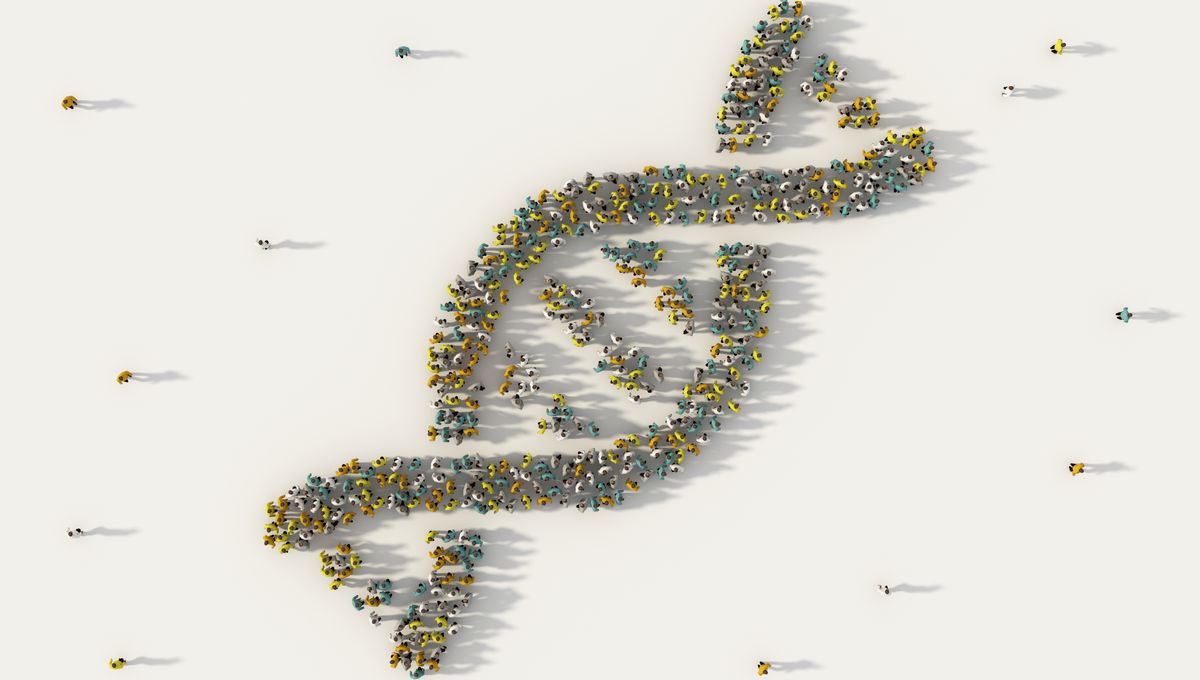
With the recent news that hackers stole data from around 6.9 million users of the genetic testing company 23andMe, it’s understandable that some might have concerns as to what someone could do with that information.
Whilst no DNA records were reported stolen, it does beg the question of the potential consequences if they had been. After all, you can change your address or your name, but unless you subject yourself to a hefty amount of radiation (in which case, someone having your DNA would be the least of your concerns), you’d be hard-pressed to alter your genetic material. So once someone has your DNA sequence, can they glean anything of importance from it?
It depends on who’s looking
Of course, some things can be interpreted from our DNA – otherwise, genetic testing services wouldn’t exist, nor would we be moving towards healthcare personalized by our genetics – but a certain level of expertise is required.
It takes training to accurately interpret genetic information, particularly when it comes to our health, and even with training, there are limits. A study of various direct-to-consumer (DTC) genetic testing companies, including 23andMe, found that 50 percent of those companies declared on their websites that there were limits to the accuracy with which they could predict disease risk or incidence.
Even clinical genetic testing often involves a whole team of experts to accurately determine what a particular genetic mutation might mean for your health, including clinical scientists, doctors, and genetic counselors. “You need experts to help people understand how much stock to put in that DNA result,” said Mary Freivogel, president of the National Society of Genetic Counselors, speaking to NBC News.
It depends on what other information comes with it
One of the major issues in privacy when it comes to genetic testing is not necessarily the security of the DNA data itself, but the information that may come alongside it. At present, it’s very difficult to identify someone solely from their genetic information, but combine that with other data like medical history, birth date, or zip code – which are sometimes required by DTC companies – and suddenly, it can become that bit easier.
“Especially if it is coupled with health information, you can say this is a 39-year-old woman from Westchester County who is five feet, seven inches tall, who has blue eyes and has cystic fibrosis – it wouldn’t be that hard for somebody to find you,” Hank Greely, director of the Center for Law and the Biosciences at Stanford School of Medicine, told NBC News.
Researchers have also proved that it is indeed possible. Back in 2013, a team from Harvard University successfully identified participants in the Personal Genome Project by name. They did this not by using the DNA participants had contributed as part of the project, but from publicly available profiles with information about medical history and demographics, like gender and zip code. Linked up with public records such as voter lists, the researchers were able to correctly identify 84 to 97 percent of the profiles they were given names for.
What could be done with your genetic information?
The real question is perhaps why anybody outside of research or healthcare would want to bother looking at your DNA. There are, of course, nosy parkers, but one of the ethical concerns surrounding genetic testing is that genetic information could be used in more nefarious ways by insurers or employers.
Hypothetically, for example, an insurer could deny you health insurance based on your genetic profile, which indicates an increased risk of developing heart disease. In the US, that’s where the Genetic Information Nondiscrimination Act of 2008 comes in, a law that bans discrimination based on genetic information (although it’s not a catch-all).
With significant strides being made in our genetic testing capabilities and the unpredictability of politics, it’s possible that, with time, the situation may well change. For now though, if someone were to have a nosy at your DNA, they’d likely face one too many hurdles; first, even figuring out what it says about you, and second, legally doing something with that knowledge.
All “explainer” articles are confirmed by fact checkers to be correct at time of publishing. Text, images, and links may be edited, removed, or added to at a later date to keep information current.
Source Link: What Can Someone Do With Your DNA Sequence?